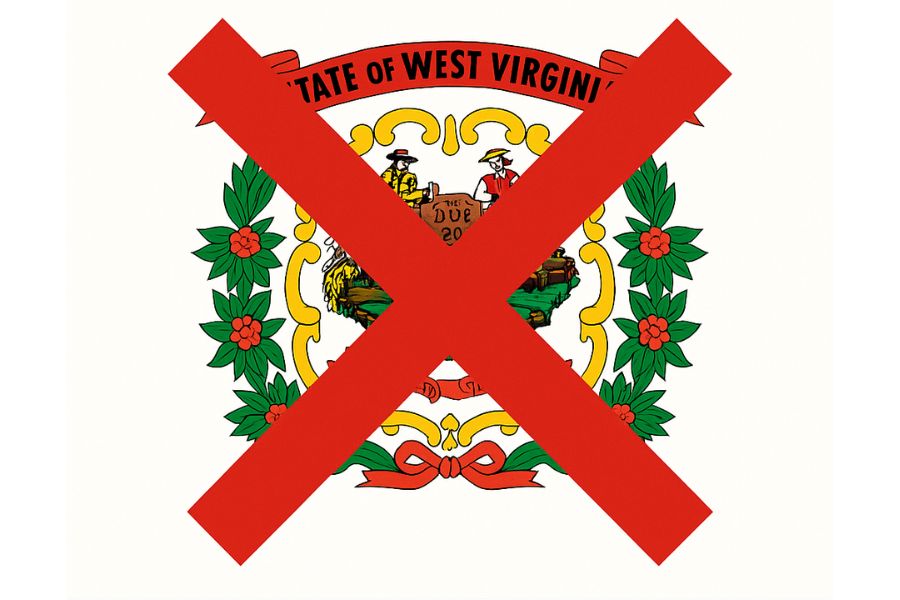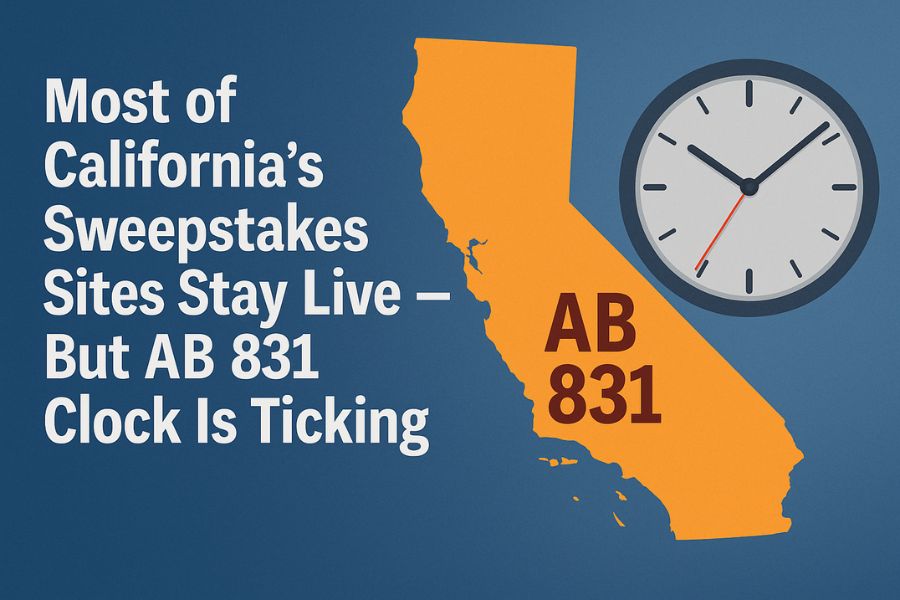Earlier this year, John McCuskey revealed he has issued 47 subpoenas to operators running free‑to‑play, dual‑currency sites. None of the targeted companies has formally responded, but an industry check confirms that at least 20 platforms now list West Virginia as ineligible.
This move follows similar actions in states such as Delaware, Mississippi, and Maryland, highlighting a growing trend of regulators challenging the sweepstakes casino model.
Why Are Sweepstakes Casinos Leaving?
Operators say the exit stems from legal uncertainty and escalating enforcement. In a July address at the National Council of Legislators from Gaming States meeting, AG McCuskey emphasized his office’s focus on sites that blend free virtual play with real‑money prizes.
By issuing subpoenas, the state is probing whether these platforms violate West Virginia’s anti‑gambling statutes.
Many brands have quietly removed West Virginia from their terms and conditions. Confirmed names include:
- Baba Casino
- Carnival Citi
- Chance
- Punt.com
- Funrize
- NoLimitCoins
- FunzCity
- Fortune Wheelz
- TaoFortune
- Legendz
- McLuck
- Hello Millions
- MegaBonanza
- Jackpota
- Spinblitz
- Modo.us
- PlayFame
- Pulsz Casino
- Pulsz Bingo
- Rolling Riches
- Sidepot
- Spree
- Stake
High 5 Casino still lists the state on its T&Cs, but it announced in February plans to withdraw amid a license suspension in Connecticut later settled with that state’s gaming division.
This trend mirrors actions in other jurisdictions. VGW, the parent of Chumba Casino and LuckyLand Slots, ignored a Delaware cease‑and‑desist for two years, then finally left. It has also defied orders in Mississippi and Maryland.
New laws have explicitly banned sweepstakes casinos in New York, Connecticut, and New Jersey, yet a handful of platforms remain. As regulators tighten the net, more operators face a choice: comply, contest, or exit.
What’s Next for Players in West Virginia?
For local players, the closures mean losing access to free‑credit games offering cash prizes. Many will see messages denying them entry or refunding any unused virtual coins.
Some operators plan to contest subpoenas, so a few platforms might return if they win legal battles. Others will redirect traffic to states where the model remains unchallenged.
Players seeking alternatives can look to states without explicit bans, though those offerings may also vanish as the legal landscape shifts. Experts suggest watching for any guidance from the West Virginia Secretary of State or new legislation that clarifies the status of sweepstakes casinos.
In the meantime, users should review each site’s terms and consider traditional, regulated online casinos if they want stability and clear consumer protections.
The mass exit in West Virginia underscores a broader reckoning for sweepstakes casinos nationwide. As regulators press on, operators must decide whether to adapt their business models or pull out, leaving players to find new ways to chase free‑play thrills.




